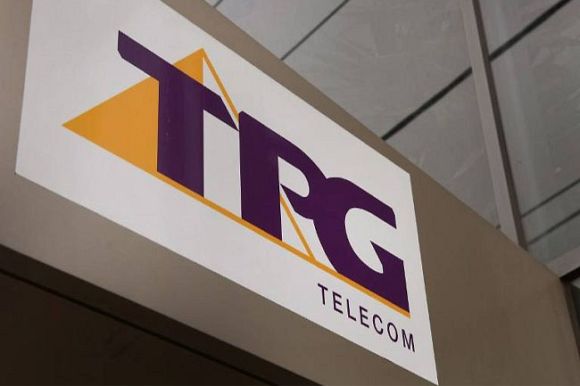The recent acquisition by Vocus of TPG’s fibre network infrastructure, along with a substantial submarine cable portfolio, represents a significant shift in Australia’s telecommunications landscape.
This move aligns with a global trend in the telecom industry: a transition from traditional vertically integrated models toward specialised, consolidated infrastructure ownership, often overseen by investment-focused entities.
Through this acquisition, Vocus now oversees an expansive network of over 50,000 kilometres of fibre and nearly 15,000 kilometres of international submarine cables, thereby broadening its influence across the Asia-Pacific region. This strategic move allows TPG to streamline its focus on customer-facing services, such as its mobile network and consumer mobile businesses while shedding much of its physical infrastructure assets.
This trend, seen increasingly in the telecommunications industry, highlights the move toward operational segmentation. By separating infrastructure ownership from consumer services, companies like TPG can hone in on their customer bases while leaving infrastructure-heavy aspects to operators like Vocus.
Macquarie Asset Management's involvement in this deal indicates a broader interest from infrastructure-focused investment firms in the telecommunications sector. Following their 2022 merger of Vocus’ New Zealand operations with 2degrees, which bolstered competition in that market, Macquarie’s acquisition strategy positions Vocus as a significant player in Australia’s digital infrastructure.
Consolidating TPG’s complementary assets with Vocus’ existing portfolio grants Vocus a larger scale, enabling it to seize new opportunities, enhance customer service and improve competitiveness in the region.
Other international acquirements from the company include for instance, Macquarie leading a sale and leaseback deal with Rakuten Mobile in Japan, providing capital to support Rakuten’s mobile network while allowing Rakuten to continue its operations. This transaction illustrates Macquarie’s commitment to fostering telecom infrastructure, particularly in the Asia-Pacific region, where rapid digital transformation requires extensive capital investment.
Additionally, Macquarie holds stakes in other significant digital infrastructure assets, such as AirTrunk, a hyperscale data centre operator with facilities across Asia-Pacific, supporting the rapid growth of data needs for tech giants. Macquarie has also invested in Tower Bersama, an Indonesian telecom tower company, further consolidating its presence in essential telecom infrastructure across Southeast Asia.
This shift towards investment companies managing digital infrastructure reflects a notable industry trend. Long-term investment firms like Macquarie and Aware Super are particularly well-suited to invest in and maintain capital-intensive networks, given their extensive resources and focus on stable, long-term growth. Telecommunications infrastructure, with its essential role in facilitating the modern digital economy, aligns well with these investment strategies, offering steady returns over time.
As these investment firms increasingly manage critical telecom assets, they can capitalise on growing connectivity and data demands throughout the Asia-Pacific.
With the inclusion of TPG’s PPC-1 submarine cable, which connects Sydney to Guam, Vocus’ acquisition strengthens its position in the Asia-Pacific region, building on its Australia-Singapore Cable, North-West Cable system, Darwin-Jakarta-Singapore Cable system and the Pacific Connect cable under construction. This development not only solidifies Vocus as a primary digital infrastructure operator in Australia but also bolsters Australia’s role as a key connectivity hub, enhancing links to international markets and supporting the global data flow.
The transaction also adds TPG’s Vision Network wholesale residential broadband assets in Australian cities and regional centres, enabling Vocus to offer broader end-to-end connectivity solutions to a more diverse customer base.
The acquisition promises significant cost synergies through the integration of TPG’s assets into Vocus’ operations, which could lead to streamlined operations and reduced expenses over time. These efficiencies can be reinvested into the infrastructure, allowing Vocus to expand its capacity and advance its competitive edge in the telecom sector.
Overall, the Vocus-TPG deal highlights the changing landscape of telecommunications, where infrastructure is increasingly managed by specialised firms. Macquarie’s ongoing investments in companies like Vocus, Rakuten and AirTrunk demonstrate the growing importance of digital infrastructure as a separate, investable asset class.
This shift not only aligns with global trends but also supports Australia’s connectivity to the broader Asia-Pacific region, strengthening its role in the international data network and driving digital innovation.
With the ongoing geopolitical tensions, Australia’s strategic position is gaining more and more international interest. By facilitating such acquisitions, infrastructure-focused firms like Macquarie contribute to a resilient and competitive telecommunications environment poised for long-term growth. Who knows what this trend long-term will mean for the ownership of the NBN?
Paul Budde is an Independent Australia columnist and managing director of Paul Budde Consulting, an independent telecommunications research and consultancy organisation. You can follow Paul on Twitter @PaulBudde.
 This work is licensed under a Creative Commons Attribution-NonCommercial-NoDerivs 3.0 Australia License
This work is licensed under a Creative Commons Attribution-NonCommercial-NoDerivs 3.0 Australia License
Support independent journalism Subscribe to IA.














